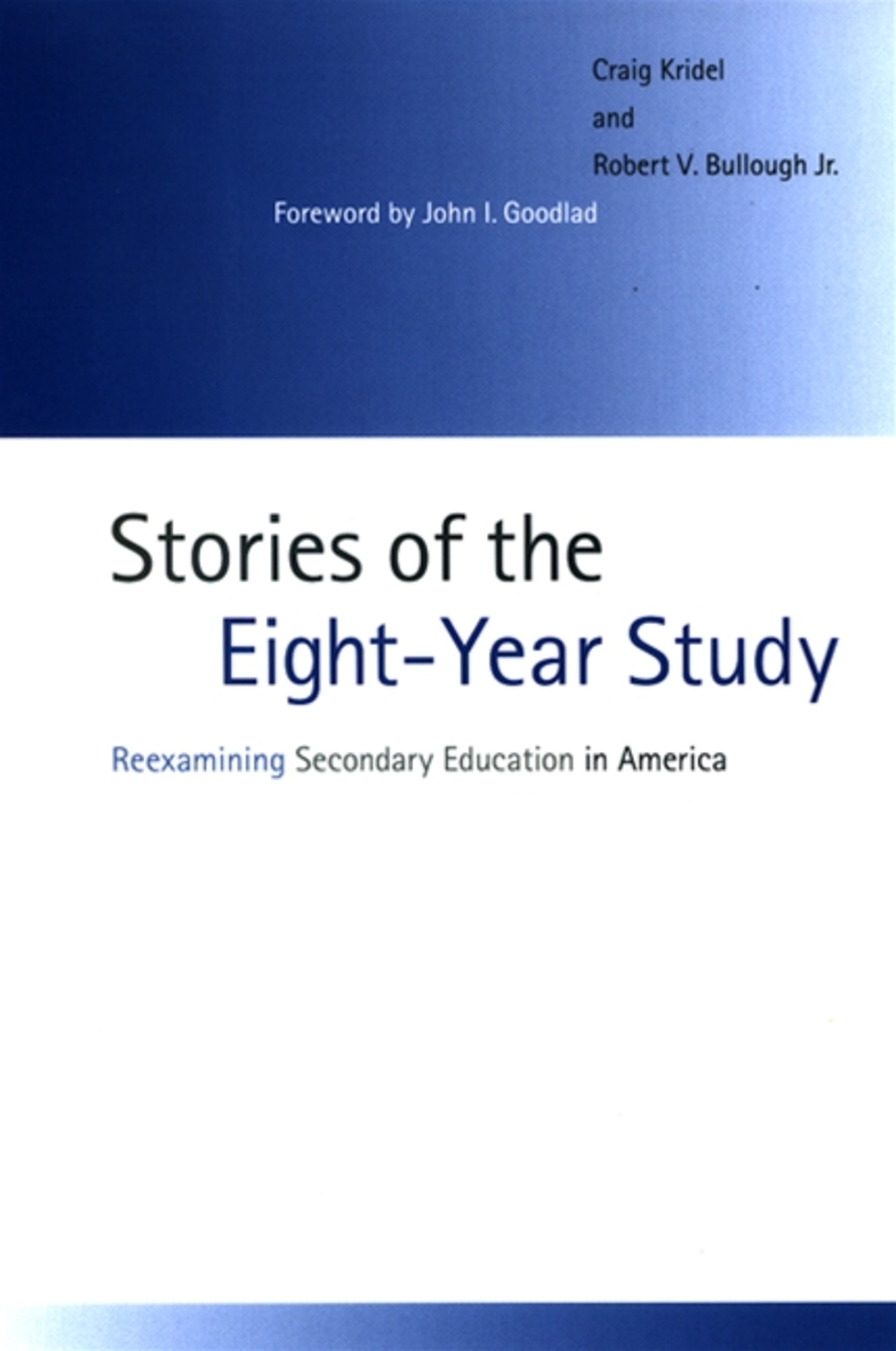We're sorry. An error has occurred
Please cancel or retry.
Stories of the Eight-Year Study

Some error occured while loading the Quick View. Please close the Quick View and try reloading the page.
Couldn't load pickup availability
- Format:
-
15 March 2007

An in-depth analysis of one of the most important educational experiments of the twentieth century.
Winner of the 2008 AERA Division B Outstanding Book Award
Presenting the first complete history of the Progressive Education Association's Eight-Year Study, which took place during the 1930s and the 1940s, this book corrects common misinterpretations of one of the most important educational experiments of the twentieth century and explores the study's value for reexamining secondary education in America today.


"…well-researched book … on the history of the Eight-Year Study and biographies of leading educators and theorists who spearheaded the project." — CHOICE
"The archives of this majestic study and interviews with participants have … been captured in [this] wonderful … book." — Wayne Jennings, The International Association for Learning Alternatives
"Skillfully blending intellectual history with biographies of leaders in reform, Kridel and Bullough give a balanced and persuasive account of the aims and achievements of progressive pedagogy at that time. The issues they raise about collaboration in reform, belief in democracy, trust in teachers, and faith in inquiry have powerful echoes in policy debates today." — David Tyack, Stanford University
"This book fills in many empty places in the history of American education. It makes wonderfully visible some of the movers and thinkers who brought 'progressive education' to life in a not always sympathetic world." — Maxine Greene, Teachers College, Columbia University
"Kridel and Bullough provide a view of education that can counteract the blinkered vision of schooling that permeates our current deliberations about school reform." — Elliot W. Eisner, Stanford University
"Anyone who wants to understand the sorry state of our schools and the anemic condition of democracy today will find ample information and ideas in this book; anyone who wants to participate in rethinking what is to be done will find here a handbook for action." — William C. Ayers, University of Illinois at Chicago
Foreword
John I. Goodlad
Acknowledgments
Introduction
Vignette: Wilford Merton Aikin (1882-1965): Hope, Success, and Realistic Expectations
1. The Educational Context of the Eight-Year Study
Vignette: V. T. Thayer (1886-1979): A Middle Position of Integrity without Compromise
2. Tests and Records: The Veneer of College Admissions
Vignette: Eugene Randolph Smith (1876-1968): Recognizing "the futility of statistics as an end in itself"
3. An Essential Faith: From Tests and Measurement to Appraisal and Evaluation
Vignette: Understanding Ralph Tyler (1902-1994)
4. Guidance, Human Relations, and the Study of Adolescents
Vignette: Alice V. Keliher (1903-1995): Fate, Frank, and Film
5. The Conception of Needs: A Dilemma of Progressive Education
Vignette: Caroline Zachry (1894-1945): None Quite Like Our Dr. Zachry
6. The Core Curriculum: Rethinking Curriculum and Instruction
Vignette: Harold Alberty (1890-1971) and the Quest for Core
7. The Importance of Social Philosophy: Democracy as a Way of Life
Vignette: Boyd H. Bode (1873-1953): Philosophy Brought Down to Earth
8. Staff Development: Teacher Workshops as Personal and Professional Growth
Vignette: Margaret Willis (1899-1987): And Gladly Would She Learn
9. Reexamining Secondary Education in America
Appendix A: The Thirty Schools of the Commission on the Relation of School and College
Appendix B: Testing Bureaus and Projects Related to the Aikin Commission
Appendix C: Excerpt from a Comprehensive Student Record
Glossary
Abbreviations
Notes
Annotated Bibliography
Index



